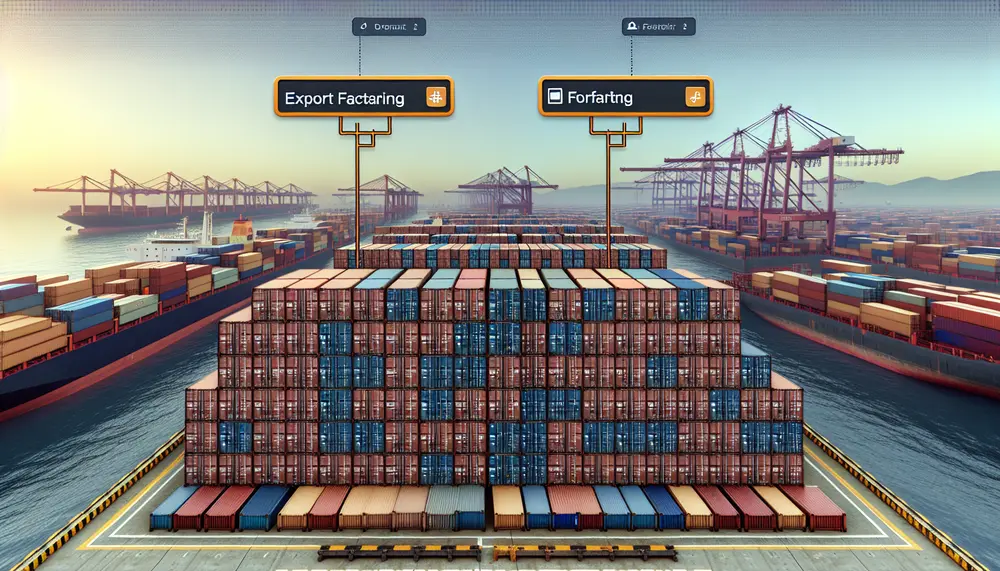risk mitigation
risk mitigation
What is Risk Mitigation?
Risk Mitigation refers to the process of identifying, analyzing, and taking steps to reduce or eliminate risks associated with financial transactions, including those in financial factoring. It's a proactive approach aimed at managing potential threats that could negatively impact a business's financial health.
Understanding Financial Factoring
Financial Factoring is a financial service where a business sells its accounts receivable (invoices) at a discount to a third party, called a factor, for immediate cash. This process allows businesses to manage their cash flow without waiting for customers to pay their outstanding invoices.
The Role of Risk Mitigation in Financial Factoring
In financial factoring, risk mitigation is critical. It ensures that the factor, who provides upfront payment for the invoices, is not exposed to excessive risk if the original debtor fails to pay. By evaluating the creditworthiness of the debtors and monitoring ongoing transactions, factors can mitigate risk effectively.
Strategies for Risk Mitigation in Factoring
Key strategies in risk mitigation for financial factoring include due diligence on potential clients' credit history, purchasing insurance against debtor default, and using recourse factoring - where the seller retains some of the risk of non-payment. These measures help protect the financial interests of all parties involved.
Benefits of Effective Risk Mitigation
Effective risk mitigation ensures stability and reduces the likelihood of financial loss. It helps maintain a healthy financial environment for both the factor and the business seeking the factoring service. By managing risks, companies can focus on growth without the added stress of financial uncertainty.
Blog Posts with the term: risk mitigation

Reverse factoring, or supply chain financing, involves a company using a third-party financial institution to pay its suppliers quickly after invoice approval, with the buyer repaying on extended terms. This method enhances operational efficiency and supplier loyalty but requires consideration...

Reverse factoring is a buyer-initiated financing solution that leverages the buyer’s credit to offer suppliers faster, lower-cost payments and strengthen supply chain resilience....

Reverse factoring, also known as supply chain financing, is a financial strategy where banks pay company invoices to suppliers quickly for a discount, improving capital efficiency and strengthening buyer-supplier relationships. This method has seen significant growth due to factors like...

Factoring in Germany involves businesses selling their invoices to a third party at a discount, providing immediate cash flow and mitigating credit risk. The German factoring market is well-established, supported by a strong legal framework, and offers benefits like enhanced...

The article compares reverse factoring and supply chain financing, highlighting their differences in initiation, process, flexibility, cost structure, and risk management. It explains that while both methods aim to improve cash flow and strengthen financial relationships within the supply chain,...

Factoring is a financial strategy where businesses sell their invoices to a third party at a discount for immediate cash, with the factor assuming the risk of collecting payments. A factoring flow chart visually outlines each step in this process,...

Factoring involves selling accounts receivable to a third party for immediate cash flow, while Confirming (reverse factoring) is when a financial intermediary pays supplier invoices on behalf of the business, extending payment terms. Both services aid in managing different aspects...

Reverse Factoring and Confirming are financial tools that enhance cash flow management in businesses by ensuring suppliers receive payments promptly while allowing buyers to manage their finances more effectively. Reverse Factoring is initiated by the buyer to help suppliers finance...

Reverse factoring, or supply chain financing, is a financial arrangement where a buyer facilitates funding for its suppliers through a third-party institution to enhance supplier cash flow and optimize payment terms. This setup not only improves operational efficiency and strengthens...

Factoring is a financial transaction where businesses sell their accounts receivable to a third party at a discount for immediate cash, which helps manage cash flow and credit risk. It involves two main types: recourse and non-recourse factoring, with the...

Terminating a factoring company relationship requires understanding contractual obligations, including notice periods and penalties for early termination. A well-crafted termination letter is essential to communicate the decision professionally, manage financial transitions smoothly, and protect against legal disputes....

Export factoring is a financial service where businesses sell their invoices to a factor for immediate capital, enhancing cash flow and transferring credit risk in international trade. Forfaiting involves selling longer-term receivables to a forfaiter who assumes all risks, turning...

An Export Factoring Agreement is a financial arrangement where exporters sell their invoices to a factor for immediate cash, easing cash flow and mitigating non-payment risks. It includes services like credit protection, invoice management, and fund advancement; terms vary widely...

Invoice financing in Nigeria is rapidly growing, offering SMEs and contractors flexible cash flow solutions through digital platforms and tailored products amid tight credit conditions. This trend benefits businesses with reliable customers by enabling faster growth, improved supplier relationships, and...
